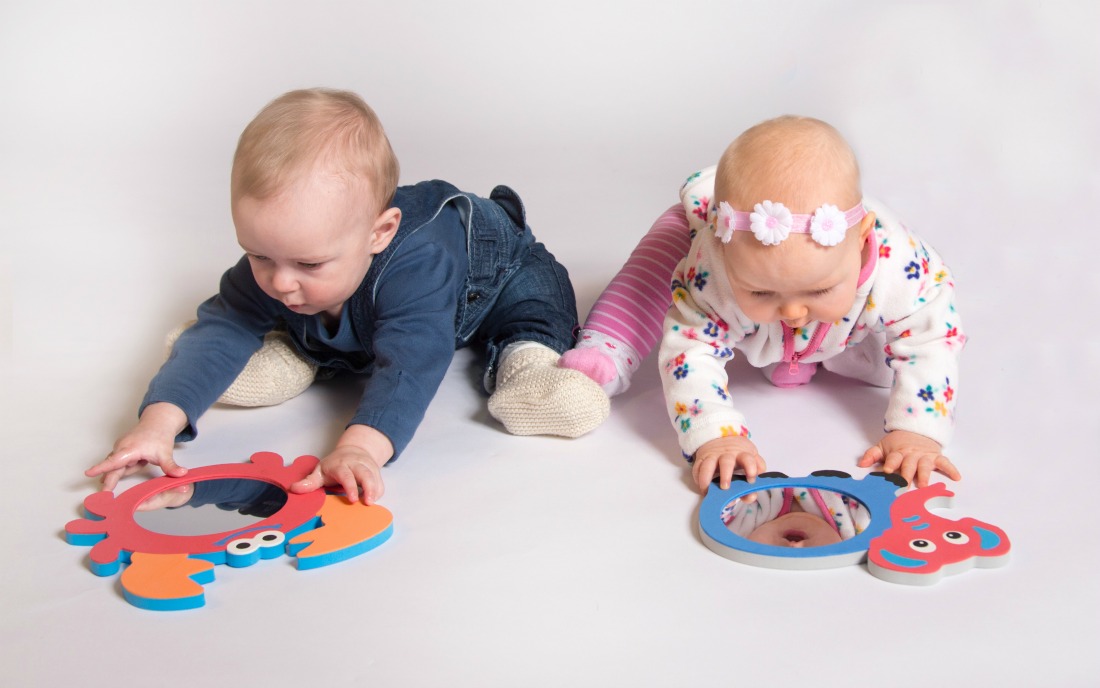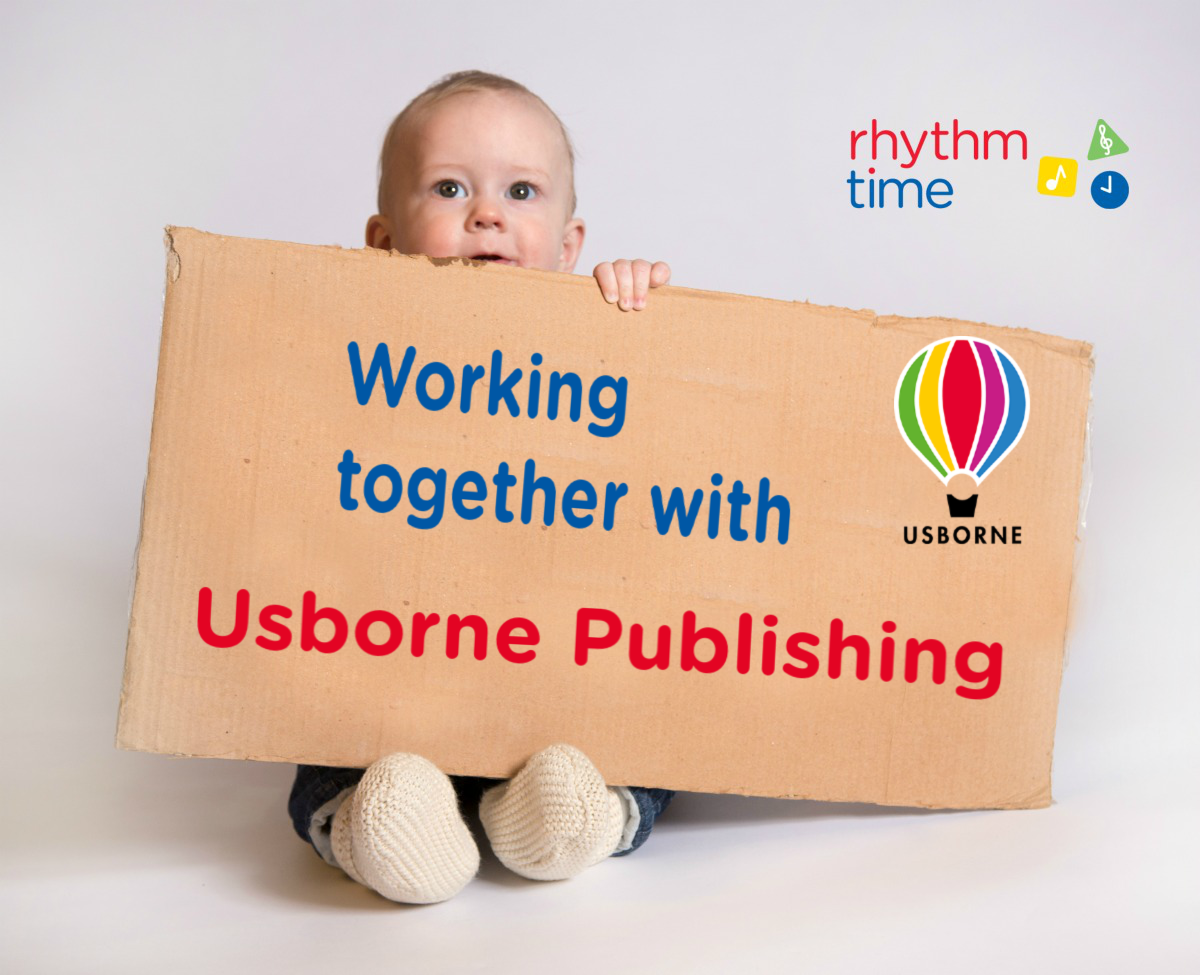Enjoying music with your baby

Did you know that listening to and making music helps your baby’s development in lots of different ways?
Read on to find how the award-winning organisation Rhythm Time is working with Usborne to instil and develop a love of reading and music in babies through singing and sensory play...
You can do lots of simple activities at home with your baby to help stimulate and encourage their development through music. Or you may like to go along to a music group like those run by Rhythm Time, to give you confidence and new ideas – and the chance to make new friends.
Here are some of the benefits early music-making and singing can bring:
- Singing simple songs to your baby will help develop their speech and language skills. Your baby will sing before they speak!
- Songs with actions are great fun but they also stimulate your baby’s auditory development – and the actions will help them understand the meaning of words.
- Moving and rocking to music will help develop their vestibular system – the mechanisms in the inner ear that give them a sense of balance and space.
- Using props will help stimulate your baby’s vision, eye tracking, co-ordination and motor skills.
- Playing with simple percussion instruments will help develop their listening, small motor skills, co-ordination, sensory awareness, and determination as they try again and again to master playing the instrument.
- Shaking small instruments, such as a maraca, will stimulate your baby’s hearing responses and help develop a sense of rhythm and pulse which is very important for language development and creative expression.
- Exercising to music will help strengthen and develop their muscles, while at the same time instilling a sense of pulse (which is like the heartbeat your baby was listening to in the womb).
- Playing peekaboo will help to develop their visual memory, listening skills, social interaction, and will give your baby a sense of themselves as being separate from you.
Making music with others is such a happy, joyful experience and there is no substitute for a child and parent taking part in a live music session. For example, Rhythm Time’s unique classes will help you understand how music can aid your child’s development, as well as build their creativity, co-ordination and confidence.

Rhythm Time writes:
Rhythm Time is very proud and delighted to have launched its partnership with Usborne – coinciding with the 20th birthday of the bestselling That’s not my... touchy-feely books.
With their bright colours, rounded edges and carefully selected textures, That’s not my... books are fantastic for encouraging sensory play. Babies and toddlers can look forward to lots of fun in class with these books and That’s not my... plush toys – and Usborne reading corners will also be introduced to our venues throughout this year.
Rhythm Time runs developmental music classes for young babies, older babies, toddlers and pre-schoolers. To find out more and book a class visit the Rhythm Time website.
Usborne musical baby books
Here’s some Usborne books to encourage musical play with your baby – and tunes and lullabies for quiet time and bedtime.
About the Author
Lisa Watts worked as an editor at Usborne in the 1970s and '80s. She wrote and edited many of the Usborne Computer Books, which were the very first full-colour books about computers, coding and computer games for children. After moving to live in the Middle East and the USA with her young family, she continued to work for Usborne, researching and writing the first Usborne science and nature encyclopedias. In the 1990s, Lisa worked on Usborne CD-ROMs - cutting-edge technology at the time - and, with the advent of the internet, set up the very first Usborne website in 1999. Shortly afterwards, in 2001, she was instrumental in launching Usborne Quicklinks, a huge library of links to kid-centric websites, carefully curated to support and enhance Usborne books. As Director of Digital Development, Lisa continues to keep Usborne ahead of exciting digital opportunities.
